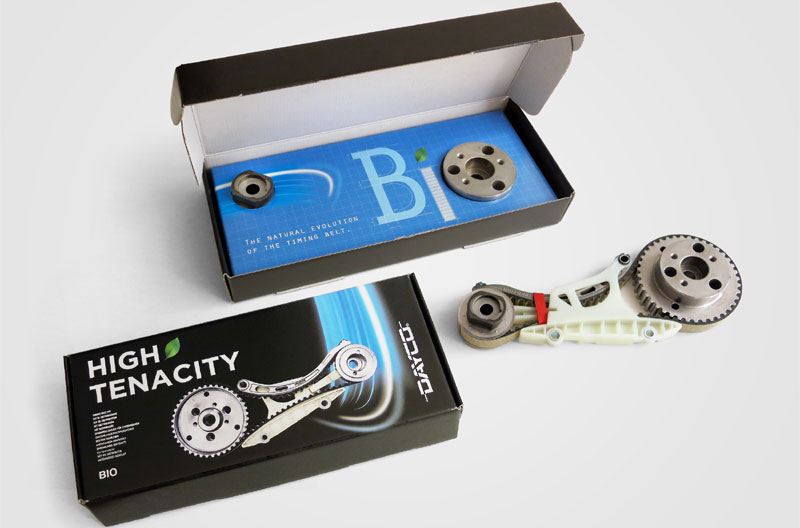
Dayco, a leading engine products and drive systems supplier for the automotive aftermarket, is also the company that pioneered the belt-in-oil (BIO) concept for automotive applications.
As Ford’s power transmission supply partner, Dayco designed the world’s first BIO drive system in 2007, when it developed the engineering solution to supersede the previous chain driven high pressure injection pump for the popular ‘Lynx’ engine, which had been widely used to power various Focus, C-Max, S-Max, Mondeo, Galaxy, Tourneo Connect and Transit Connect models between 1998 and 2013. Since its successful introduction, BIO technology has now been incorporated into several engines from other vehicle manufacturers including PSA and VAG, as well as additional Ford engines, such as its multi award-winning 1.0-litre EcoBoost unit.
See Dayco’s technical seminar entitled ‘Timing and Auxiliary belt system design and troubleshooting‘, on both days at all four MECHANEX shows in 2016.BIO technology has brought in a true revolution in synchronous transmission systems because developing a solution that enables a drive belt to work inside the confines of the engine has meant that the best of belt and chain technologies have been brought together.
As a result, the previous advantages associated with a chain driven system over an external belt system in terms of the size of the engine, have been mitigated and the more evident advantages of a belt transmission have been maintained. These benefits translate into the ability to reduce the weight of the transmission system and therefore reduce its inertia, which combined with the lower friction properties of a flexible belt, delivers the twin environmental benefits of lower fuel consumption and reduced emissions. The technology also produces noticeably lower noise levels than a comparable chain driven system.
The belt however is but one element within the system that also includes mechanical transmission components, such as special tensioners with specifically developed bearings and innovative damping systems able to generate the friction needed in the presence of lubricating oil.
As a further endorsement of its research and development credentials and manufacturing excellence, since pioneering BIO technology, Dayco remains the only manufacturer that also supplies BIO belts for OE primary drive transmission systems alongside those original fuel, oil and water pump applications.
Aftermarket solutions
Although the requirement for an aftermarket solution for BIO applications has to date not been great, the combination of the time period since their initial introduction and their wider use has meant there is a growing need for such a solution. As a result, workshops will welcome the news that Dayco Aftermarket has now introduced a range of BIO belts and kits to cater for the likely requirement for these applications, including the original Ford application.
As the primary drive system on the Lynx engine is driven from the injection pump, the performance of the injection pump drive system is crucial, which is why Dayco has developed a complete replacement ‘cartridge’ that entirely substitutes the chain driven system with the BIO system that superseded it.
Therefore, in addition to the belt itself, the cartridge also includes the corresponding belt pulleys to enable workshops to update the engine and remove and replace the chain driven sprockets and all other evidence of the original chain-driven system.
See Dayco’s technical seminar entitled ‘Timing and Auxiliary belt system design and troubleshooting‘, on both days at all four MECHANEX shows in 2016.









